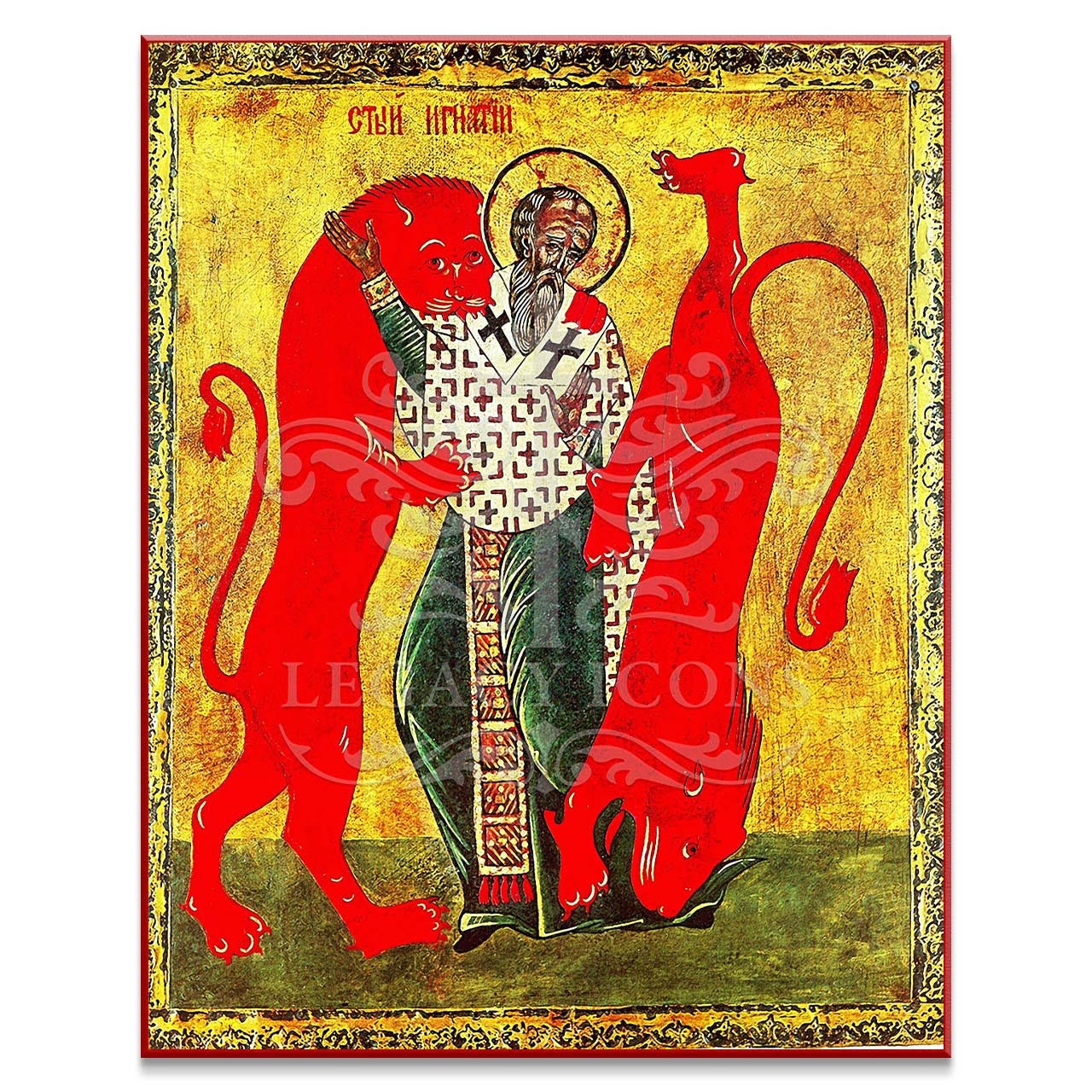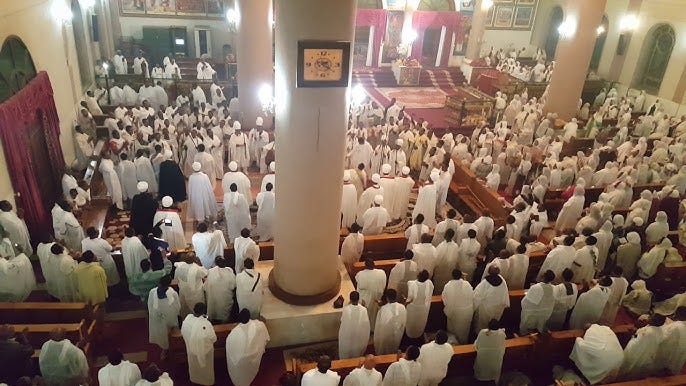“There is one Physician, of flesh and of spirit, originate and unoriginate, God in man, true Life in death, son of Mary and son of God, first passible and then impassible: Jesus Christ our Lord.”
St. Ignatius of Antioch
James 3:11-4:6
Brethren, does a spring pour forth from the same opening fresh water and brackish? Can a fig tree, my brethren, yield olives, or a grapevine figs? No more can salt water yield fresh. Who is wise and understanding among you? By his good life let him show his works in the meekness of wisdom. But if you have bitter jealousy and selfish ambition in your hearts, do not boast and be false to the truth. This wisdom is not such as comes down from above, but is earthly, nonspiritual, devilish. For where jealousy and selfish ambition exist, there will be disorder and every vile practice. But the wisdom from above is first pure, then peaceable, gentle, open to reason, full of mercy and good fruits, without uncertainty or insincerity. And the harvest of righteousness is sown in peace by those who make peace.
What causes wars, and what causes fighting among you? Is it not your passions that are at war in your members? You desire and do not have; so you kill. And you covet and cannot obtain; so you fight and wage war. You do not have, because you do not ask. You ask and do not receive, because you ask wrongly, to spend it on your passions. Unfaithful creatures! Do you not know that friendship with the world is enmity with God? Therefore whoever wishes to be a friend of the world makes himself an enemy of God. Or do you suppose it is in vain that the scripture says, “He yearns jealously over the spirit which he has made to dwell in us”? But he gives more grace; therefore it says, “God opposes the proud, but gives grace to the humble.”
Mark 11:22-26
The Lord said: “Truly, I say to you, whoever says to this mountain, ‘Be taken up and cast into the sea,’ and does not doubt in his heart, but believes that what he says will come to pass, it will be done for him. Therefore I tell you, whatever you ask in prayer, believe that you have received it, and it will be yours. And whenever you stand praying, forgive, if you have anything against any one; so that your Father also who is in heaven may forgive you your trespasses.”
Translation of the relics of the Hieromartyr Ignatius, the Godbearer and Bishop of Antioch
After the holy hieromartyr Ignatius was thrown to the lions in the year 107 on the orders of the emperor Trajan, Christians gathered up his bones and preserved them at Rome.
Later, in the year 108, the saint’s relics were collected and buried outside the gate of Daphne at Antioch. A second transfer, to the city of Antioch itself, took place in the year 438. After the capture of Antioch by the Persians, the relics of the Hieromartyr Ignatius were returned to Rome and placed into the church of the holy Hieromartyr Clement in the year 540 (in 637, according to other sources).
Saint Ignatius introduced antiphonal singing into Church services. He has left us seven archpastoral epistles in which he provided instructions on faith, love and good works. He also urged his flock to preserve the unity of the faith and to beware of heretics. He encouraged people to honor and obey their bishops, “We should regard the bishop as we would the Lord Himself.” (To the Ephesians 6)
In his Letter to Polycarp, Saint Ignatius writes: “Listen to the bishop, if you want God to listen to you... let your baptism be your shield, your faith a helmet, your charity a spear, your patience, like full armor.” (Compare Eph. 6:14-17 and the Wisdom of Solomon 5:17-20. Also The Ladder 4:2)
Communal Life and the Ecclesial Experience
Fr. Chris Metropulos
Living an Orthodox Christian life is inherently communal. The Church is not merely an institution, but a living organism filled with diverse members called to embody the love of Christ collectively.
The Role of the Community
The Orthodox Church teaches that being part of a community enriches the spiritual experience, as fellowship provides support, accountability, and love. The communal aspect is especially visible in parish life, where believers gather for worship, education, and service. Each member brings unique gifts and perspectives, contributing to the overall life of the Body of Christ (Ephesians 4:16).
Liturgical Life and the Rhythm of Worship
The liturgical life of the Church embodies this communal experience. Through public worship, we participate in the mysteries of faith together, celebrating significant feasts, prayer, and singing. The rhythm of the liturgical calendar provides a framework to commemorate the life of Christ and the saints, allowing individuals to engage deeply in the narrative of salvation history. This communal celebration fosters a sense of belonging and shared faith, essential elements of being truly alive in the Orthodox faith.
Acts of Service and Outreach
Moreover, being alive in the Church extends beyond the walls of the parish. Orthodoxy emphasizes social responsibility, encouraging believers to act out the love of Christ through charitable works and outreach. The community’s collective action embodies compassion and mercy, reflecting God’s love in tangible ways. Engaging in service nurtures a heart aligned with the Gospel’s call to love one’s neighbor, reinforcing a living faith that manifests in daily interactions.
This week’s calendar reminders:
Monday 1/27: Matins 8:30 am
Tuesday 1/28: no services or events
Wednesday 1/29: no services or events
Thursday 1/30: Matins 8:30 am
Friday 1/31: Matins 8:30 am
Saturday 2/1: Catechumen Class 4:30; Choir Rehearsal 5 pm; Great Vespers 6 pm
Sunday 2/2: Divine Liturgy 9:15am
CLICK BELOW to donate online:
Christ the Savior Orthodox Church is located in Southbury, Connecticut, and is part of the New England Diocese of the Orthodox Church of America.
Mailing address: Christ the Savior Church, 1070 Roxbury Road, Southbury, CT 06488
PLEASE DONATE to help our parish do the work of the Lord, thrive and grow, and extend the Kingdom of God. May the Lord bless your generosity!
Fr. Moses Locke can be reached at frmoseslocke@gmail.com











